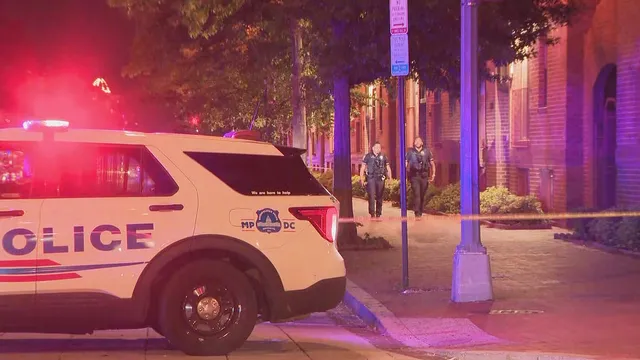
Intern Eric Tarpinian-Jachym dies after targeted shooting in D.C
2025-07-03 18:42- Eric Tarpinian-Jachym was shot during a targeted attack in Northwest D.C., resulting in his death.
- The shooting took place near 7th and M Streets, injuring two others who were not seriously harmed.
- Officials are investigating the incident and have issued a reward for information on the shooters.
Express your sentiment!
Insights
In Washington, D.C., a tragic shooting incident occurred on July 1, 2025, resulting in the death of Eric Tarpinian-Jachym, a 21-year-old congressional intern. Tarpinian-Jachym was shot when several suspects exited a vehicle and opened fire on a group of people near the intersection of 7th and M Streets around 10:28 PM. He was discovered unconscious at the scene and later succumbed to his injuries in a local hospital. The targeted nature of the attack indicated that Tarpinian-Jachym was not the intended victim. The shooting also injured two other individuals, who were transported to hospitals with non-life-threatening injuries. Previously, Tarpinian-Jachym had started his internship for U.S. Representative Ron Estes, a Republican from Kansas, in June. He was a rising senior at the University of Massachusetts Amherst, majoring in finance with a minor in political science. Many friends, colleagues, and officials expressed their condolences, noting his bright future and contributions to his community. Representative Estes commemorated him, highlighting his cheerful demeanor and dedication to public service. As the investigation progresses, Metropolitan Police recovered the suspect vehicle, but no arrests have been made as of now. Authorities have urged anyone with information to step forward, offering a reward of up to $25,000 for leads that could result in the arrest and conviction of the shooters. The incident raises troubling questions about gun violence and safety in urban areas, particularly for young individuals pursuing aspirations of public service. Shockwaves reverberated through the community and the campus of UMass Amherst following the news of Tarpinian-Jachym's death, prompting discussions about the risks associated with violence and the impact it has on aspiring leaders. The university expressed its condolences and is expected to provide support for students affected by this tragedy. Political leaders across party lines also mourned the loss of a dedicated young person who contributed to the community and aimed to make a difference in the world.
Contexts
Gun violence in Washington D.C. remains a pressing public safety concern, attracting the attention of policymakers, law enforcement, and citizens alike. The unique socio-political landscape of the District, marked by a blend of urban density, socio-economic challenges, and ongoing debates over gun control measures, contributes to the complexity of addressing this issue. Despite ongoing efforts to reduce gun violence through legislation and community programs, the statistics reveal a troubling trend that necessitates a deeper examination of the underlying causes, as well as a commitment to actionable solutions. Over the years, data has consistently illustrated spikes in gun-related incidents during certain times, particularly during summer months when social activities increase and tensions can rise. The relationship between gun violence and factors such as unemployment, poverty, and social inequality is well-documented, leading to calls for comprehensive approaches that address not only the availability of firearms but also the broader socio-economic conditions that exacerbate violence. In particular, efforts focusing on mental health support, community engagement, and sustainable economic development are seen as critical components in the fight against gun violence. Law enforcement strategies in Washington D.C. have evolved in response to changing patterns of gun violence. Initiatives such as targeted policing, community outreach programs, and partnerships with local organizations aim to deter crime while building trust within communities. However, these efforts often collide with the public's concerns regarding civil liberties and the potential for over-policing, underscoring the need for a balanced approach that emphasizes both safety and justice. The role of gun control legislation in shaping the climate of gun violence in the District cannot be understated, with ongoing debates surrounding the effectiveness of existing laws versus the need for stricter regulations. The statistics on gun violence in Washington D.C. serve as a clarion call for continued vigilance and innovative responses to a complex issue. All stakeholders, including government officials, law enforcement agencies, and community leaders, must collaborate to create holistic strategies that tackle the root causes of gun violence, ensuring that the measures not only decrease immediate risks but also foster long-term societal change. As the District of Columbia grapples with these challenges, the quest for a safer community for its residents remains paramount.